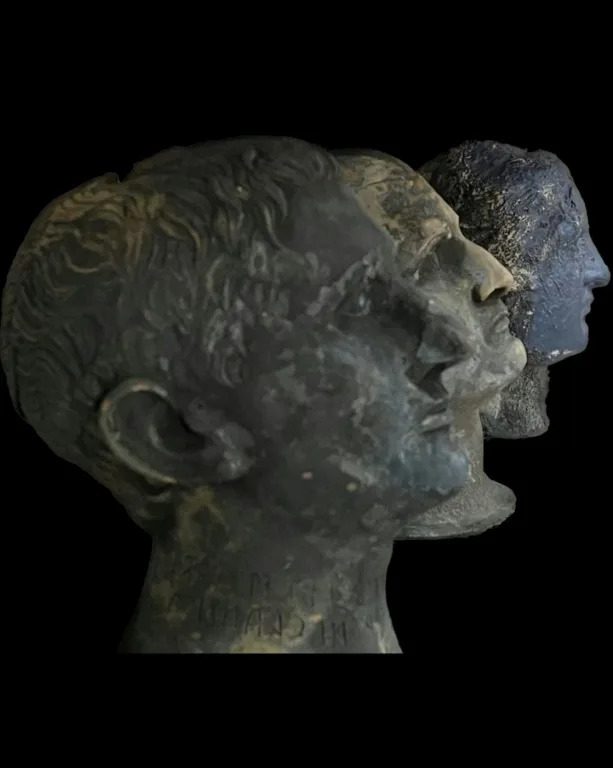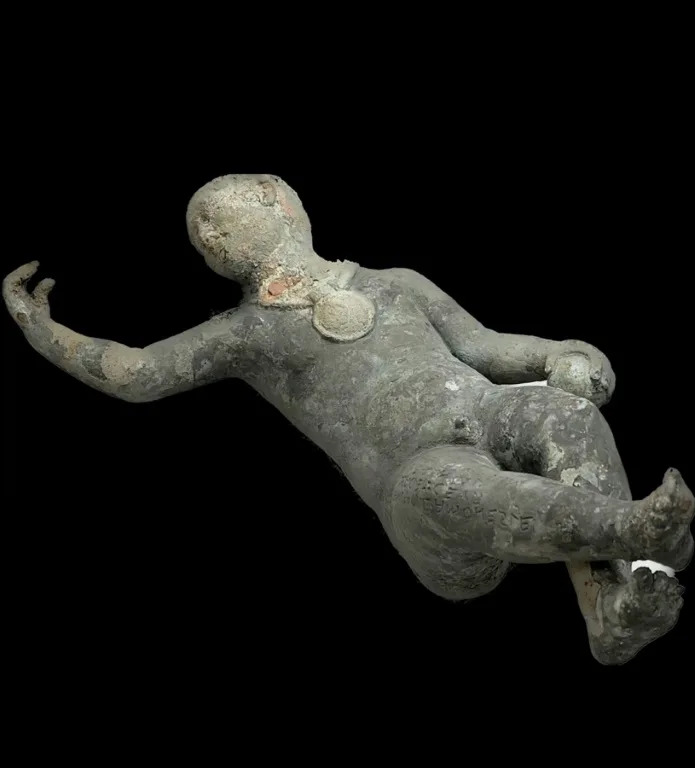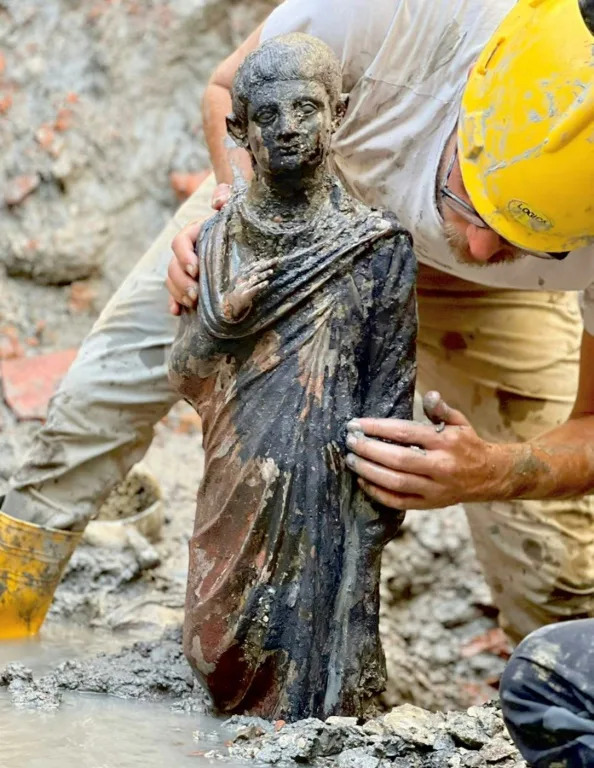Discovery of bronzes rewrites Italy's Etruscan-Roman history
Thanks to the mud that protected them, the figurines were found in a perfect state of conservation. Alongside the figures were 5,000 coins in gold, silver and bronze, the ministry said.
As evidence of the importance of the find, the ministry announced the construction of a new museum in the area to house the antiquities.
Jacopo Tabolli, who coordinated the dig for the University for Foreigners in Siena, said the discovery was significant because it sheds new light on the end of the Etruscan civilization and the expansion of the Roman Empire between the 2nd and 1st centuries B.C.
The period was marked by wars and conflicts across what is today’s Tuscany, Umbria and Lazio regions, and yet, the bronze statues show evidence that Etruscan and Roman families prayed together to deities in the sacred sanctuary of the thermal springs. The statues bear both Etruscan and Latin inscriptions.
“While there were social and civil wars being fought outside the sanctuary ... inside the sanctuary the great elite Etruscan and Roman families prayed together in a context of peace surrounded by conflict,” Tabolli said. “This possibility to rewrite the relationship and dialectic between the Etruscan and Romans is an exceptional opportunity.”
Some of the two dozen bronzes are entire figures of humans or gods, while others are of individual body parts and organs which would have been offered up to the gods for intervention for medical cures via the thermal waters, the ministry said in a statement.
Italy unearths exceptional haul of ancient bronzes
Tue, 8 November 2022
Italian archaeologists announced on Tuesday the extraordinary discovery of more than 20 bronze statues created over 2,000 years ago, almost perfectly preserved in the mud of hot springs in Tuscany.
The statues depict deities venerated at a sanctuary in San Casciano dei Bagni, established first by the Etruscans and then expanded under the Romans, according to Italy's culture ministry.
Votive offerings and around 5,000 gold, silver and bronze coins were also found during three years of excavations at the site, which has drawn visitors to its natural thermal waters for more than two millennia.
Jacopo Tabolli, the Etruscan specialist who led the project, called it an "unparallelled" discovery that promised to shed new light on the period when the bronzes were created, from around the 2nd century BC to the first century AD.
It was during this time that the ancient civilisation of the Etruscans, conquered by Rome, was gradually absorbed into the Roman Empire.
"The Tuscan site is the largest deposit of bronze statues from the Etruscan and Roman age ever discovered in ancient Italy and one of the most significant in the entire Mediterranean," Tabolli said.
"It is unparallelled, especially because until now the statues from that period have mainly been terracotta."
The hot spring water preserved the items to such an extent that inscriptions in Etruscan and Latin are still visible, including names of powerful Etruscan families.
The statues include depictions of the god Apollo and of Hygieia, venerated as the goddess of health.

Massimo Osanna, director general of Italy's state museums, said it was the most important Italian finds since the Riace Bronzes, and "certainly one of the most significant bronze finds ever made in the history of the ancient Mediterranean".
In 1972, two ancient Greek bronze statues of warriors dating back to the fifth century BC were recovered in a near-perfect state of conservation near Riace in southern Italy.
The bronzes discovered in the Tuscan hot springs will be the centrepieces of a new museum, to which an archaeological park will eventually be added.
ar/ams/gil



No comments:
Post a Comment